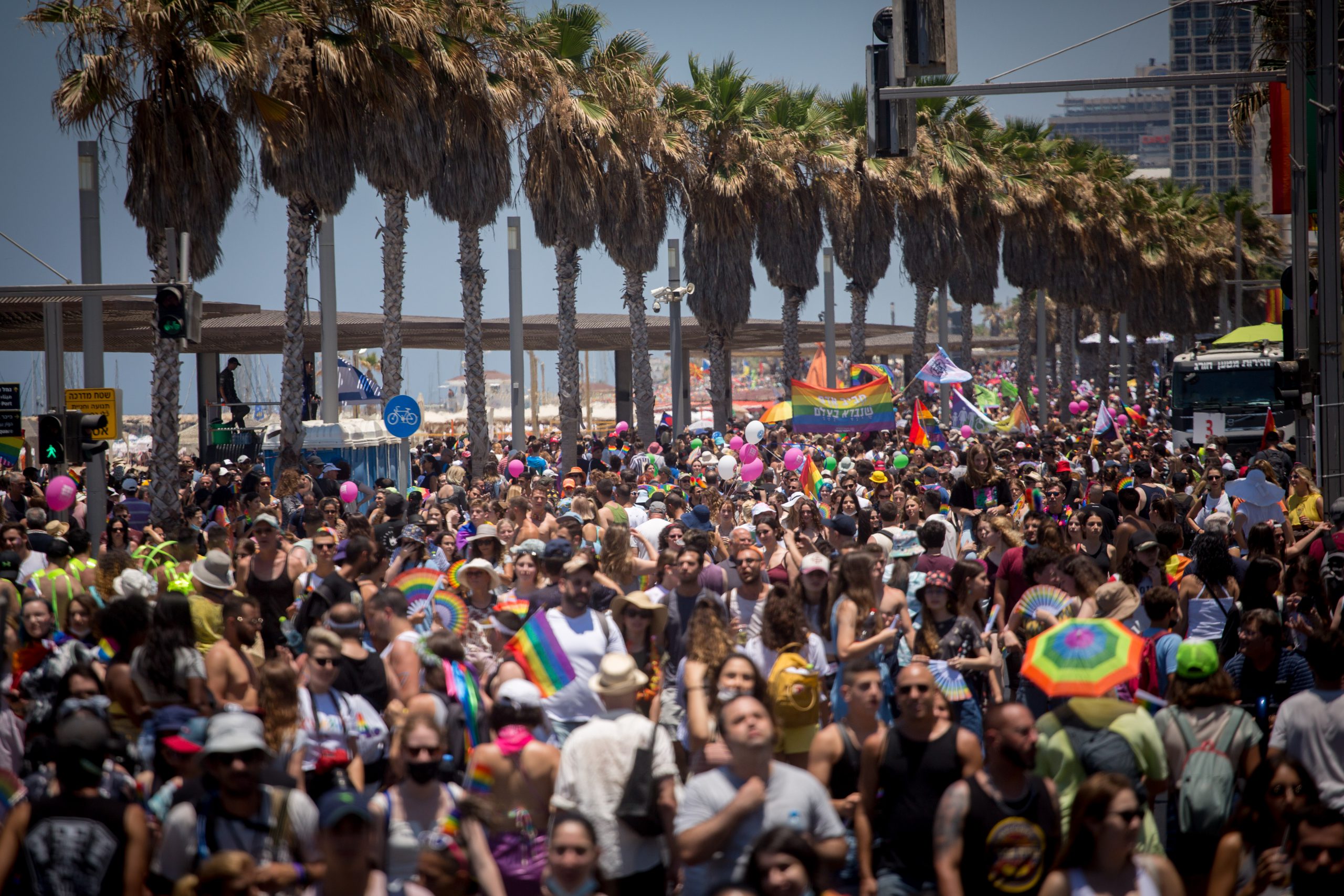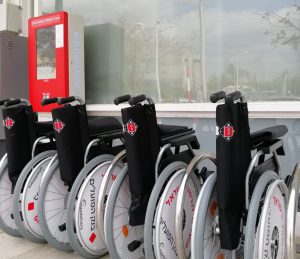Reduced Inequalities


Home » Reduced Inequalities » SDG 10- Pride Month in Israel: Not Just Grassroots
SDG 10- Pride Month in Israel: Not Just Grassroots
For Israel it was a first: to note Pride Month, the Foreign Minister issued a directive to raise an LGBTQ+ pride flag outside its Jerusalem headquarters – alongside the country and office flags; its official diplomatic missions around the world followed suit. “The Foreign Ministry and its workers are leading a message of tolerance, brotherhood and freedom,” he tweeted.
The decision by the Foreign Ministry, which counts among its ranks numerous openly gay diplomats – including the Deputy Foreign Minister and several ambassadors – is less a revolution and more the culmination of an ongoing process. Indeed, if support in the past for Israel’s LGBTQ+ community was mostly a grassroots issue, in the last decade or so the cause has clearly been embraced by its leadership. A recent tweet by Israel’s President perhaps says it all: “Our hearts are open to you, even as we continue to fight for the fundamental right for everyone to be who they are.”
In this context, the country’s new Health Minister, openly gay, made clear in a recent interview (Hebrew): “I come from the community, am a part of it, and have no intention of abandoning it.” Among the relevant issues that he will seek to advance, he made mention of alleviating bureaucracy for transgender Israelis.


Of course, all this doesn’t mean that grassroots activism in Israel is over; far from it. Perhaps the best example of this is the annual Tel Aviv Pride Parade, which came roaring back after a year’s absence with an estimated 100,000 participants (several thousand people attended the Jerusalem parade, considered particularly unique).
Obviously, parades are just a small part of support activities on the ground; The Israel Gay Youth (IGY) organization is but one illustration of this. Dedicated to empowering LGBTQ+ young people, the group’s CEO recently divulged that its support work now extends to assisting Haredi Jews as well as Arabs – communities considered especially challenging in this context.
Many LGBTQ+ organizations can today rely on consistent Israel government support – funding and otherwise (IGY, for example, is backed by a number of official bodies). Among these activities, since 2017 the Ministry of Social Affairs has been running a broad social work program in partnership with local authorities designed to provide support for at-risk LGBTQ+ young people aged 13 and up (as well as for their families). The Ministry is also behind a number of shelters for at-risk LGBTQ+ young people, such as Beit Dror, and in this context recently issued a tender to establish an additional seven hostel-style locations for this community (expansion of existing activities with Beit Dror is also currently under consideration).
One of the new planned locations has been designated specifically for the Arab population; in an effort to better deal with the complexity of this community in the LGBTQ+ context, earlier this year the Ministry also set up a special Arabic-language hotline.
Other Ministry services recently inaugurated to improve handling of LGBTQ+ challenges in the wider community include family support, combatting drug addiction, social work with transgender Israelis, as well as sensitivity training for social workers.
While Tel Aviv is for obvious reasons the trademark of support for LGBTQ+ in Israel, the community of course has a presence throughout the country. One of the more eye-opening reports in this context recently focused attention on Afula, a modest-size town surrounded by agricultural communities in Israel’s north.
Naturally, Tel Aviv will clearly remain dominant in the public eye in the LGBTQ+ context – as illustrated by “Sublet”, a recently released LGBTQ+ relevant film by Israeli director Eytan Fox, himself an active member of the community.
Related articles


SDG 10- Wheelshare – Making the Future Accessible
Reduced Inequalities Imagine a world that is fully accessible for people with mobility challenges. Imagine a world designed without physical barriers so every human can


SDG 10 – Government Safety Net
Reduced Inequalities Internal tensions are running high in Israel, for obvious reasons. One area of criticism that continues to reverberate is the government’s perceived slow


SDG 10 – Diversity VS Inclusion
Reduced Inequalities This week the international community noted the UN-sanctioned World Day for Cultural Diversity for Dialogue and Development. Which got us thinking: Is there


















